From a refreshing gulp after a workout to a companion for our daily meals, water is an irreplaceable part of our lives. But when it comes to storing this vital liquid for long-term storage, questions arise. One of the most intriguing being: does water expire in glass bottles over time?
Water in glass bottles does not “expire,” but can become contaminated or altered in taste and quality due to external factors. Proper storage and regular checks are essential to maintain water freshness.
Let’s take a closer look.
The Quest for Pure Water Storage
Storing water properly isn’t just about hydration; it’s about health, taste, and sustainability. When it comes to maintaining water purity and how long you can store water, the material of the storage container plays a pivotal role. Let’s begin by understanding why the purity of stored water is crucial.
The Essence of Water: Why Purity Matters
Water, a simple H2O molecule, is vital for every living organism, making its purity a matter of utmost importance. Ingesting contaminated water can result in a plethora of health issues, from mild gastrointestinal problems to severe conditions like cholera.
Thus, ensuring water is free from impurities is essential, both for taste and health reasons.
To appreciate the significance of water purity, consider the various functions water performs in our body. It aids digestion, regulates body temperature, and plays a pivotal role in cellular functions. These critical roles make the cleanliness of our drinking water paramount to maintain overall health.
Lastly, clean water isn’t just about preventing illness; it’s also about providing our body with essential minerals.
The Glass Advantage: First Glance at Longevity
Glass has been a trusted storage material for centuries. One of its main advantages is its non-reactivity, ensuring that no harmful chemicals leach into the water, preserving its taste and purity. This sets it apart from many other storage materials, making it a favorite for those prioritizing health and taste.
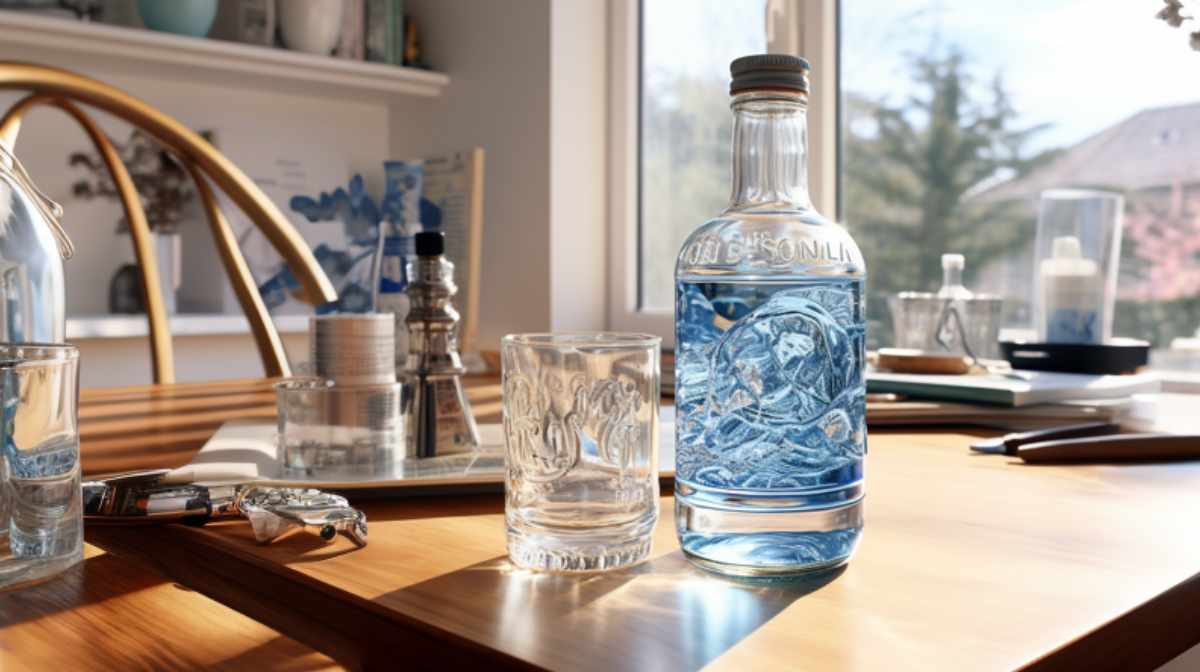
Additionally, glass bottles have an aesthetic and tactile advantage. They feel premium to the touch, and water inside a clear glass bottle is often perceived to be fresher and purer than in other containers.
This visual transparency builds trust, allowing users to see the clarity of the water they’re consuming.
Beyond aesthetics, glass is environmentally friendly. Unlike plastic, which can take hundreds of years to decompose, glass is 100% recyclable.
It can be broken down endlessly without loss in quality or purity, making it a sustainable choice for those environmentally conscious.
The Science of Water Storage
The interaction between water and its storage container is a blend of chemistry and environmental factors. Delving into this intricate science, we’ll explore how water transforms over time and why glass stands as an unmatched protector.
Water’s Transformation Over Time
Even when stored in the ideal conditions, water undergoes subtle changes over time. While these changes might not render the water unsafe, they can alter its taste and mineral composition. Over extended periods, water can absorb atmospheric CO2, leading to slight acidity, which might affect its taste.
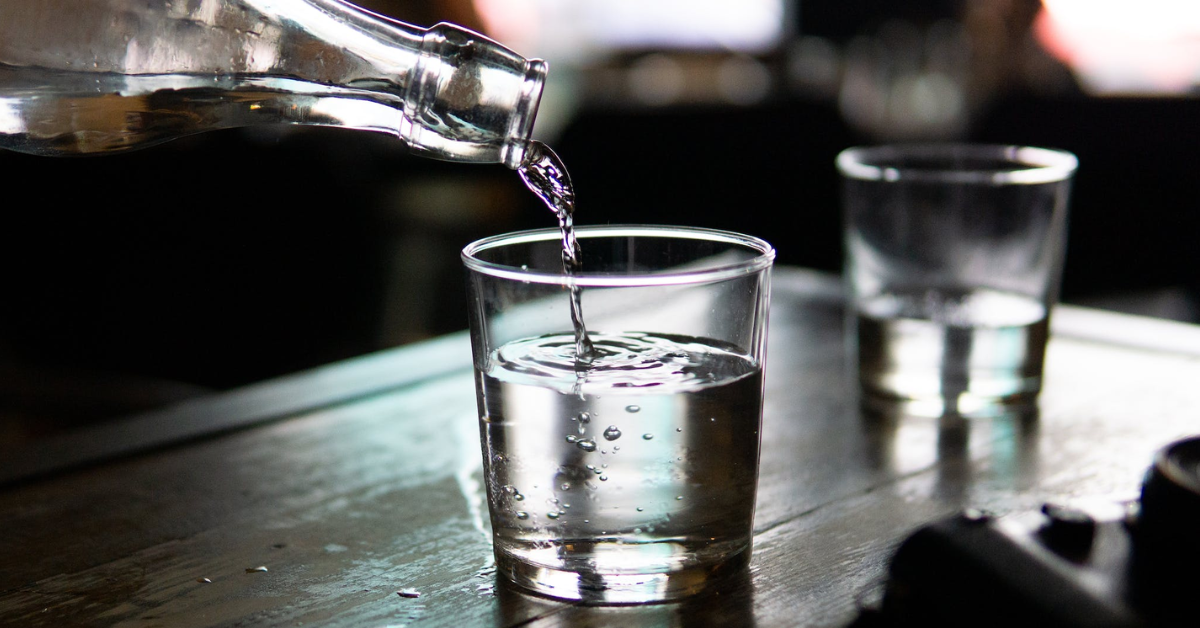
Dissolved gasses, such as oxygen, can also interact with water. In the presence of contaminants, these gasses can sometimes lead to microbial growth, especially in warmer environments. While glass bottles significantly reduce these risks, they can’t completely eliminate them, hence the need for proper storage.
Mineral contents in the water can also precipitate over time, leading to a slight cloudiness. This isn’t necessarily a sign of contamination, but rather a natural process. It’s always a good practice to inspect stored water for any signs of changes before consumption.
Glass: A Barrier Against Contaminants
The molecular structure of glass makes it impermeable to gasses and contaminants. This ensures that external pollutants, odors, or flavors don’t find their way into the stored water. Thus, in terms of purity, glass stands out as a top-tier storage medium.
Furthermore, glass doesn’t corrode, rust, or degrade, ensuring that water remains untouched by external elements. This durability, combined with its non-reactive nature, makes glass a superior choice for long-term storage.
However, even with these advantages, it’s crucial to ensure that the bottle caps or seals remain intact to maintain water quality.
It’s also worth noting that not all glass is created equal. Depending on the manufacturing process and materials, some glass bottles might be more resistant to UV light, while others may be designed to be shatterproof.
Always choose a bottle that best suits your storage needs.
Glass vs. Plastic: A Comprehensive Comparison
The battle between glass and plastic has raged on for years, each with its strengths and weaknesses. While plastic offers portability and lightweight convenience, glass presents a strong case for longevity and purity. This comparison will shed light on why glass may be the superior choice for storing water.
The Dangers of Plastic Leaching
Plastics have been a topic of concern when it comes to water storage. Over time, certain plastics can leach chemicals into the stored water, especially when exposed to heat. This is common when you improperly store water in a car. Chemicals like BPA, which has been linked to health issues, are common culprits in substandard plastic bottles.
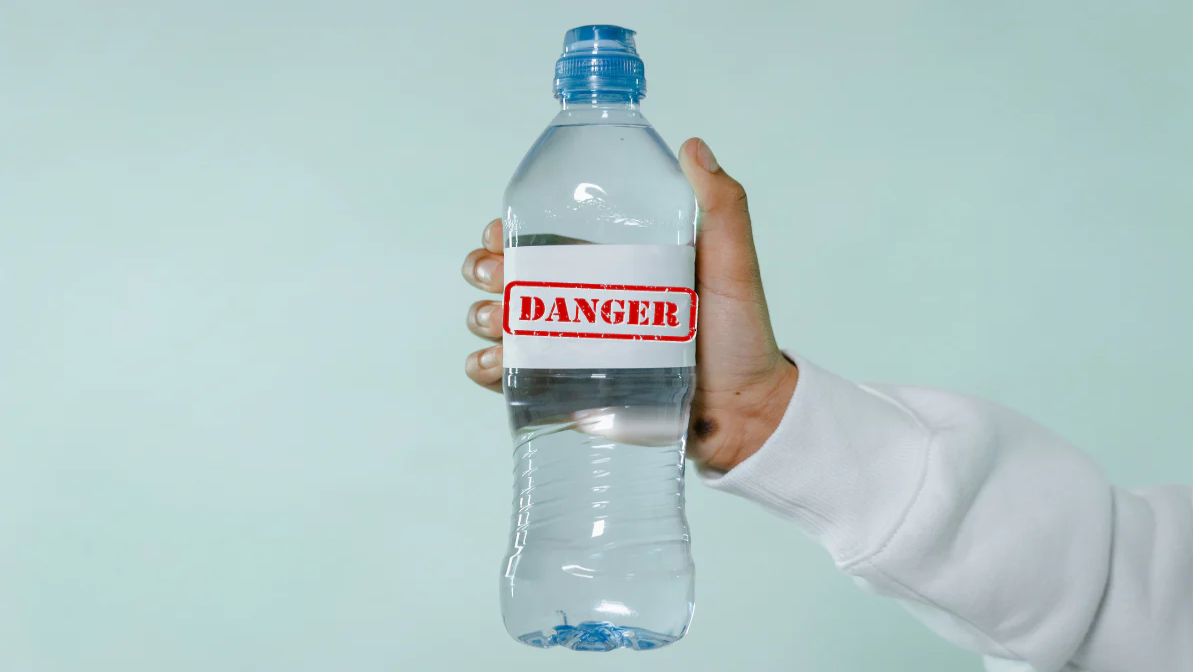
Moreover, certain types of plastics are porous. This means that they can absorb flavors and contaminants from their surroundings, which can then be transferred to the water. This is why water stored in plastic bottles might sometimes taste “off” or different after prolonged storage.
Lastly, environmental concerns tied to plastics are undeniable. Beyond leaching, the environmental footprint of plastic production and its contribution to pollution present critical challenges. Glass, being recyclable and durable, offers a more eco-friendly alternative.
The Strengths and Weaknesses of Glass Bottles
While glass bottles are champions in maintaining water purity, they come with their own set of challenges. They’re fragile, making them prone to breakage if not handled with care. Additionally, glass bottles are heavier than their plastic counterparts, making transportation a consideration.
On the flip side, the advantages of glass bottles are numerous. They offer a premium look and feel, making them ideal for elegant settings or occasions. The inert nature of glass ensures that no chemicals seep into the water, preserving its original taste and properties.
Another strength is their sustainability. The ability to recycle glass bottles without loss of quality or purity makes them an eco-friendly choice. As environmental consciousness grows, the preference for glass over other materials is expected to rise.
Proper Storage for Maximum Freshness
While glass offers unmatched purity, it’s still crucial to store water correctly to maintain its freshness. This section delves into the art of maximizing the lifespan and taste of water stored in glass bottles, including the nuances of opened versus unopened containers.
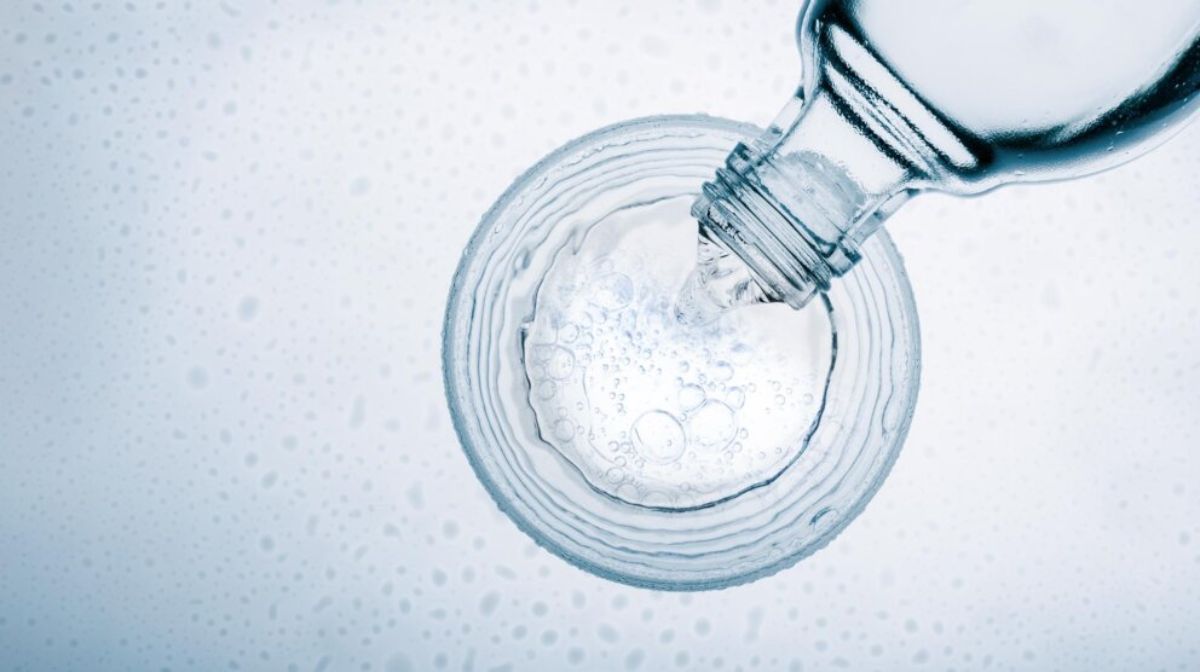
Key Considerations for Safe Storage
When it comes to storing water in glass bottles, a few practices can ensure it remains fresh for longer. Keeping the bottles away from direct sunlight prevents the water from getting warmed up, which can lead to microbial growth. It’s also wise to store them in a cool, dry place to maintain their freshness.
The caps or seals of the bottles are equally important. They should be airtight to prevent the entry of contaminants. Regularly checking the seals and ensuring they’re intact can go a long way in preserving water quality.
Lastly, while glass is a fantastic barrier, the surroundings matter. Storing glass bottles in a clean environment, away from strong odors or chemicals, is essential. Any contaminants present in the environment can potentially affect the seal quality or the water if the bottle is opened frequently.
The Lifespan of Opened vs. Unopened Bottles
An unopened bottle of water stored under ideal conditions can remain fresh for years. The seal ensures that no contaminants enter, and the properties of the glass prevent any leaching. It’s almost like a time capsule, preserving the water’s original state.
However, once opened, the dynamics change. The introduction of external air brings in potential contaminants.
For an opened bottle, it’s recommended to consume the water within a few days to ensure its freshness and taste. Always ensure the cap is replaced firmly after each use.
It’s also worth noting that frequent opening and closing can introduce more air and potential pollutants into the bottle.
If you’re using a glass bottle for daily consumption, consider transferring a day’s worth of water to a separate container, minimizing the exposure of the stored water.
Distinct Types of Water in Glass Bottles
Not all water is created equal. Different types, such as tap, filtered, distilled, and mineral water, each have unique characteristics.
Tap Water vs. Filtered Water
The source of water makes a difference in its quality.
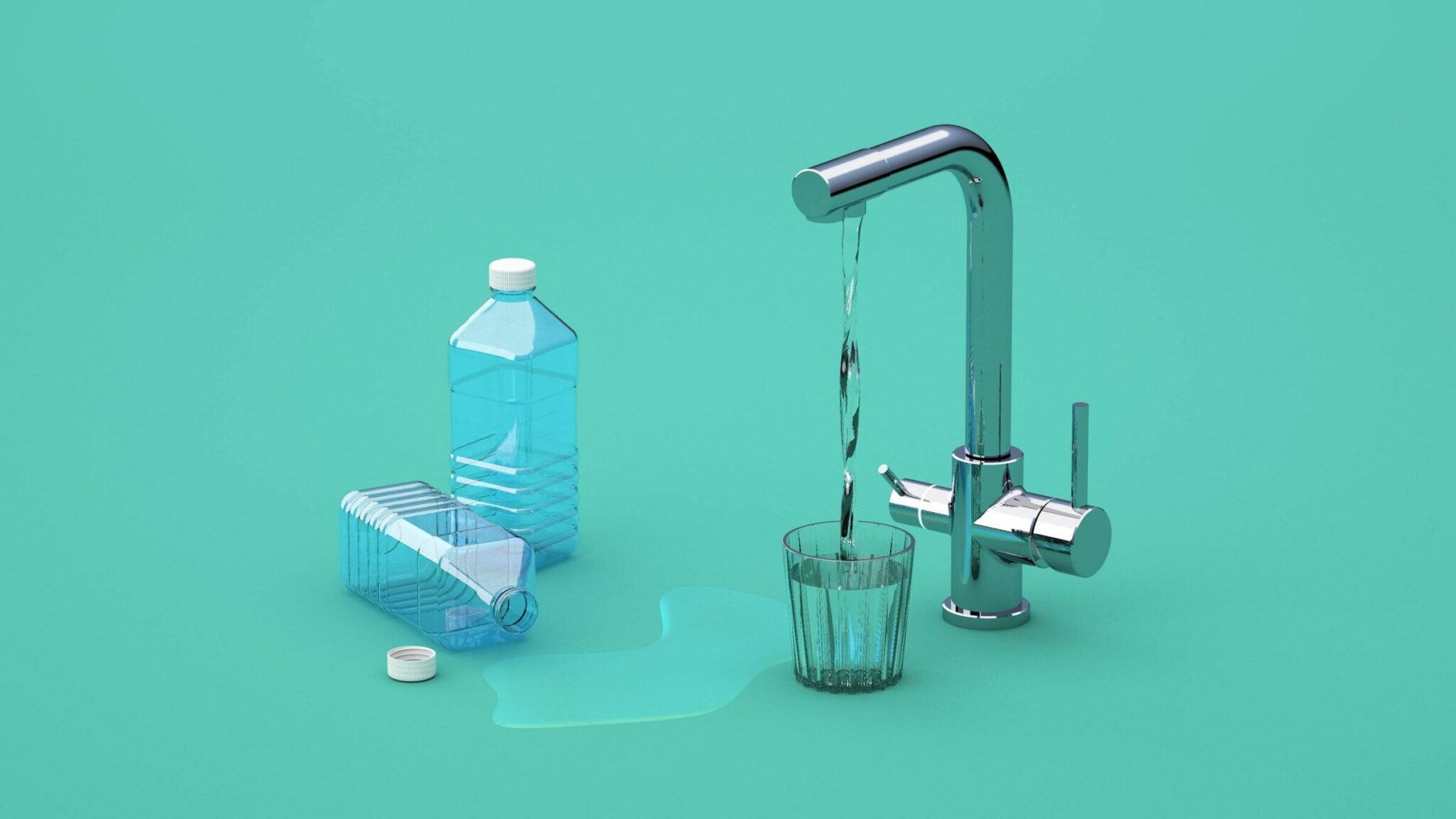
Tap water, depending on the region, may contain chlorine and other chemicals used for treatment. While these are generally safe for consumption, they can affect the taste and may not be the best for long-term storage.
Filtered water, on the other hand, has undergone additional purification processes. It removes many of the chemicals and potential contaminants present in tap water, offering a purer taste.
For storage in glass bottles, especially long-term, filtered water is often the preferred choice.
However, it’s essential to understand the filtration process. Not all filters are created equal, and while some may remove larger contaminants, others are designed to remove even minute particles.
When considering water for storage, a thorough understanding of its source and treatment can ensure you’re storing the best quality.
Distilled vs. Mineral Water
Distilled water, sometimes produced using DIY water distiller, is purified by boiling and then condensing the steam back into liquid, ensuring almost all contaminants are removed.
It’s exceptionally pure but lacks minerals that are often present in natural sources. Some people prefer it for its neutral taste, while others believe the absence of minerals makes it less beneficial.
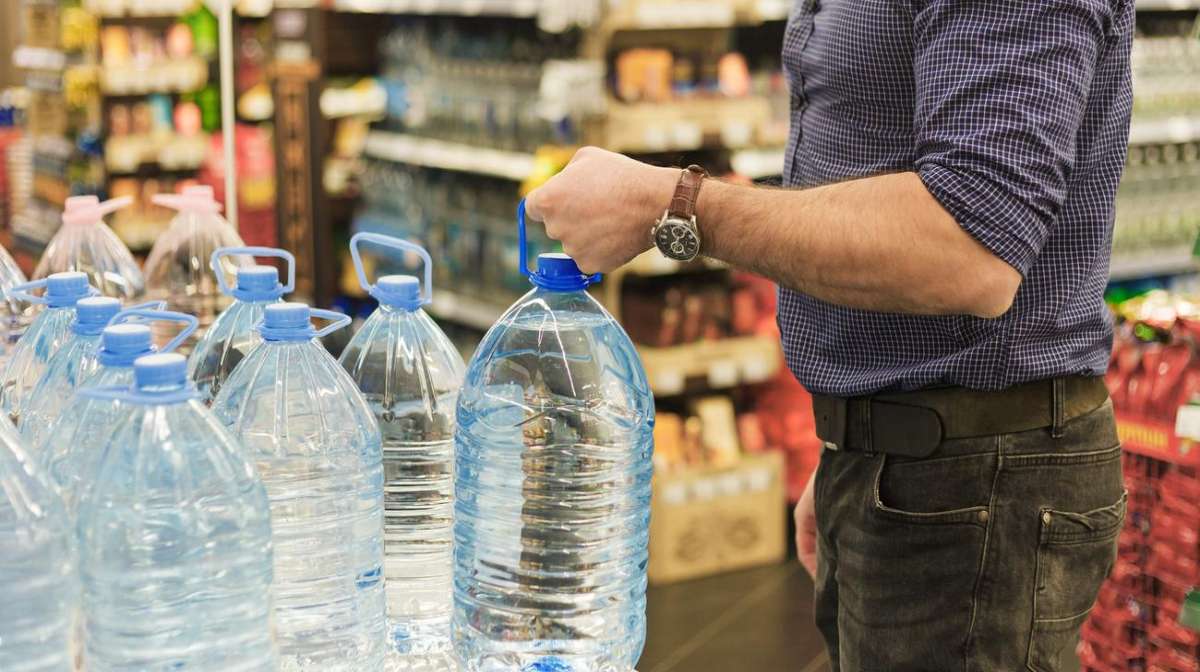
Mineral water, as the name suggests, contains minerals such as calcium and magnesium. These minerals are either naturally present or added during the bottling process. While it offers additional health benefits, the presence of these minerals can sometimes affect the water’s taste, especially when stored for extended periods.
Both distilled and mineral water have their advantages and are suited for different purposes. Depending on personal preference and the intended use, one might be chosen over the other.
In the context of storage in glass bottles, both can be stored effectively, but it’s crucial to consider their unique properties.
Time-Tested Tales of Water in Glass
History is filled with anecdotes of water storage, and glass has been a significant part of this narrative. In ancient civilizations, glass containers were often considered premium and were used to store not just water but also wines and other beverages. The longevity and purity offered by glass were recognized even then.
Modern anecdotes often revolve around the rediscovery of old glass bottles. There are tales of individuals finding century-old bottles of water that, when opened, tasted as fresh as the day they were sealed. Such stories highlight the incredible preservation properties of glass.
However, it’s worth noting that while these stories are fascinating, they’re exceptions and not the norm. While glass is excellent for storage, regular checks and proper practices are essential. These tales, though, serve as a testament to the potential longevity of water stored in glass.
The Crystal Clear Way to Keeping Your Water Fresh and Pure
Storing water in glass bottles is more than just a trend or aesthetic choice; it’s a nod to purity, sustainability, and health. The inherent properties of glass make it an unparalleled medium for preserving the essence and taste of water.
The debate between glass and plastic will undoubtedly continue, but when it comes to ensuring the best taste and utmost purity, glass stands tall. Whether you’re seeking longevity, health benefits, or just a refreshing sip, embracing the timeless vessel of glass might just be the answer.
